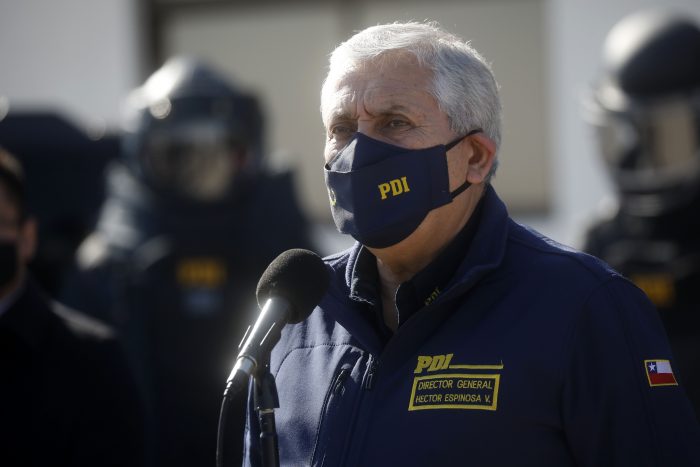
This article first appeared in El Mostrador on August 26, 2021.
That old idea that Chile was not a corrupt country has not only been left behind but has also been buried. With time we have realized that corruption has been in force for years and that it operates as the order of the day without major obstacles.
This itself has provoked in the citizenry a feeling of weariness and impunity. And even when we are aware of corruption and its ways of proceeding, we continue to learn of scandals that deteriorate public faith.
Transparency International defines corruption as the abuse of power for personal gain, and precisely when there is power and no accountability, there will always be a fertile field for its perpetration. This is directly translated in the cases we have experienced in Chile, regarding the misappropriation of reserved expenses.
We recently learned about the case involving the former general director of the PDI, Héctor Espinosa, after the State Defense Council (CDE) filed a lawsuit for embezzlement, falsification of a public instrument, and money laundering. Espinosa’s mechanism would have been similar to the one used by the former Commander in Chief of the Army, Juan Miguel Fuente-Alba, taking part of the reserved expenses, to which both had access due to their positions, and which correspond to money received by some state agencies to finance intelligence activities.
Based on these facts, there are several concerns that we must address since this is not just another case of corruption, but of mechanisms already known and used, which continue to operate without any real control to prevent them from continuing to happen. Already in 2015, we knew about the fraud in the Army and 2016 in the Carabineros, both investigated for the appropriation of reserved expenses, and this 2021 we see the same action again, this time in the PDI.
At the beginning of 2020, the law was modified regarding the rendering of accounts of reserved expenses, incorporating an annual and generic report to the Comptroller’s Office, which is still insufficient, since the rendering is referred to a list and a sworn statement, which does not require attaching receipts or invoices, leaving it to the discretion of the one who renders and to the faith of the one who reviews. So, if we already knew about the misuse of these reserved expenses years ago, why is there still so much laxity to curb this issue?
In a 2018 report, it was the PDI that indicated that the Carabineros’ reserved expenses were distributed – among other ways – through sealed envelopes. Then, if the PDI knew about the mechanism to embezzle funds, why did it not investigate Espinosa before the slightest doubt that this could also be happening in the institution? The above shows us that we should not only demand greater oversight of spending, but that institutions and governments should also leave behind condescension, and be able to denounce and demand an investigation if there are indications that something is not right.
The private sector also has an important role to play in preventing corruption. On the one hand, companies must have stringent controls in place to detect possible crimes both internally and when doing business or contracting suppliers, since the chances of being used for money laundering are increasingly likely. Let’s not forget that the corrupt and money launderer will always try to launder these assets, introducing them into the economy through the private sector.
In addition, the banks and institutions most exposed to money laundering risks are obliged to report to the Financial Analysis Unit (UAF) suspicious transactions (ROS) and cash transactions over the US $10,000 (ROE). For this reason, the commitment of the companies is fundamental, so that investigation can be initiated in time, and prevent these conducts from operating for years.
Several actors can stop corruption. In most cases, many passive accomplices do not report, either to avoid problems or reprisals or because they do not have formal channels for reporting. For this reason, it is essential to provide the necessary guarantees so that those who know of irregularities can report them in time and thus stop illegal conduct.
We cannot continue “pretending” to be surprised with every corruption scandal; we need concrete actions and exemplary penalties. At the same time, we must take care of the institutions and restore confidence in them, so that what happened with the PDI, which went from being the most trusted institution in the last CEP survey to the dock of the corrupt, is not repeated.
By Susana Sierra










